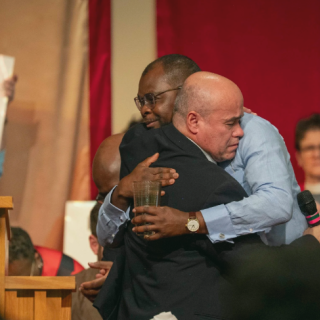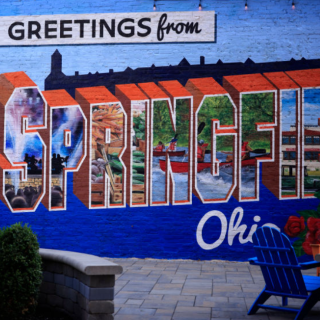In 2022, Columbus City Council and Mayor Ginther seated a Charter Review Commission, the first since 2014, for the purpose of reviewing the Charter and making recommendations for potential revisions. Their last meeting was this week, and per Charter requirements, recommendations from the Commission are due to City Council by July 10.
Any amendments to the Charter would require a vote of City Council and the approval of Columbus voters during a future election.
The Columbus City Charter, originally adopted by voters in 1914, outlines the fundamental rights, powers and responsibilities of the citizens and their elected municipal officials. The Charter was last amended via ballot in 2020 to create a civilian police review board and in 2018 to create district representation for City Council.
Those on the 2022 Charter Review Commission are: Trudy Bartley (chair of the commission), currently serves as Associate Vice President of Local Government & Community Affairs for The Ohio State University. Desmond “Des” Bryant, serves as VP of Government Relations for the Columbus Chamber of Commerce. Keary McCarthy, Executive Director of the Ohio Mayors Alliance. Norwood “Buzz” Thomas, currently a licensed realtor with Coldwell Banker Realty. Nana Watson, currently the President of the Columbus Branch of NAACP.
The Charter Review Commission – a majority being Black – held its final meeting this past week, and Jonathan Beard had his own recommendations.
Beard, as many know, is one of Columbus’s most noteworthy progressives and African-American activists. He’s currently seeking to put a citizen-driven Rent Control initiative on a future Columbus ballot.
In a series of emails to local office holders, activists and media, Beard believes City leadership “is leading this Charter Review Commission by the nose in a manner to preclude it from addressing City Council districts, which is the major change this commission should consider and recommend.”
The heart of Beard’s argument can be best be surmised as such: 90 percent of Council members who have served since 1985 have been appointed to their seats and then run as incumbents a year or two later.
In 2017, the NAACP Legal Defense and Educational Fund (LDF), weighed in on Columbus’s at-large electoral method, which is now no more: “Only one Black candidate, Jennette Bradley, has been elected to the city council in recent history without special circumstances being present. All of the Black members currently serving on the City Council were initially appointed and subsequently elected to the council as incumbents.”
Beard contends, “I reiterate my concern that the city is using Black faces to cover up for continuance of a racially discriminatory method of selecting council members.”
Starting in the 2023, City Council will expand to nine members and be elected by district in a primary election and then at-large in the November general election. In the 2023 election, all current City Council members will run for another term.
“I am further concerned by what I see as a continuance of the City’s longstanding practice of ‘white-washing’ Black interests. By having Black folk preside over issues that structurally disenfranchise Black voices – and in this case, systematically disenfranchise Black voters,” wrote Beard.
Beard continued, “The biggest Columbus City Charter issue over the past decade has been the way City Council is established. There have been three attempted citizen initiatives seeking change: One that made it on the ballot, one that ended up in the Ohio Supreme Court after City Council denied citizens ballot access, and a bizarre and overtly political City Council-initiated charter amendment.
Beard believes voters “blindly approved Council President Shannon Hardin’s fake council districts.” What he described as a bizarre model of Council membership where Council members must live in a geographically defined area but are voted on by voters citywide or “at-large.”
This “fake district model,” wrote Beard, is used only in Sparks (NV), Reno (NV), and Tucson (AZ). “It is nothing resembling a ‘best practice’ worth emulating.”
“In fact, at the time the last Charter Commission was recommending it (in 2014), it was being sued under the Voting Rights Act of 1965 in Tucson, which had caused the Nevada state legislature to begin drafting new charters for Reno and Sparks,” stated Beard. “I’ll note that the Tucson case was dismissed because the case was brought on behalf of Republican candidates who won in their fake districts but lost the citywide vote. The courts rightly determined that being a Republican is not a ‘protected class’ under the Voting Rights Act.
“In any case, adopting this disaster of a proposal despite the NAACP Legal Defense Fund’s written objection to it, gives you an example of the level of disrespect and absurdity the last charter review commission was willing to undertake to maintain a racially discriminatory voting system, which the current commission, led by a highly-competent African-American woman, and with the President of the Columbus chapter of the NAACP as a member, appears willing to co-sign.”
Rather than address issues like competitiveness and true representation, wrote Beard, “these fake districts – designed cynically by Council President Hardin as a ballot diversion which voters unexpectedly approved, despite no campaign for these districts – are already appearing to be played and manipulated.”
“Shannon Hardin, Nic Bankston, and Shayla Favor, each African American, all lived on the historically Black Near East Side in what has become ‘fake’ District 7, which runs from Bexley through downtown, around Grandview and down to the southwest outer belt up to Grove City and Urbancrest,” stated Beard.
Between May and October 2021, as Nic Bankston was being substituted on the ballot for councilmember Mitch Brown, who had resigned, Bankston moved out of “fake” District 7 and into “fake” District 5, continued Beard.
Bankston a recent city employee who worked in the Neighborhoods Division, had failed to secure enough signatures to qualify for the ballot independently for the 2021 election. But with Mitch Brown’s resignation, the petition committee was able to put Bankston on the ballot for Brown.
“A month ago, Council President Hardin moved from his home on the Near East Side in ‘fake’ District 7 to a new home in ‘fake’ District 9 – leaving Shayla Favor as the sole remaining Black councilmember in ‘fake’ District 7, which again is the historically Black Near East Side,” wrote Beard.
“The relocation or moves by Bankston and Hardin are bullshit,” continued Beard. “These are orchestrated moves seeking election outcomes in the same way that decades of appointing Black candidates to City Council so they can eventually run as incumbents – with party support and business community financial backing – to create the illusion of Black political representation.
“I urge the Charter Review Commission to reject this charade: Columbus City Councilmembers should be elected by district, just like in every other big city in America.
“This commission, led by Black residents, must put forward recommendations to create competitive elections to council in a manner that clearly comports with the Voting Rights Act of 1965 for its members to have done a credible job of representing the interests of Columbus’s Black citizens. We should not have to wait another decade, and it should not be up to citizens to pursue the hard path of ballot initiative.
“I urge you to exercise restraint in providing city government more power, and in fact urge in your Charter review that you consider ways to make city government more accountable.”
In short, Beard asked the Charter Review Commission:
1. Revisit true council districts and get rid of the “fake” districts Shannon Hardin championed.
2. End the ballot eligibility of persons appointed to mid-term vacancies, make them disqualified placeholders.
3. End the practice of having slates of candidates on petition nominating forms – require each candidate to get their own signatures
4. Reduce the number of petition signatures needed to qualify to 25 signatures from the district.
5. Either eliminate the single subject requirement of citizen-initiated ballot issues (preferred) or require the city attorney to complete his/her review within 10 days or forego the city and every other person’s right to challenge on that issue.



